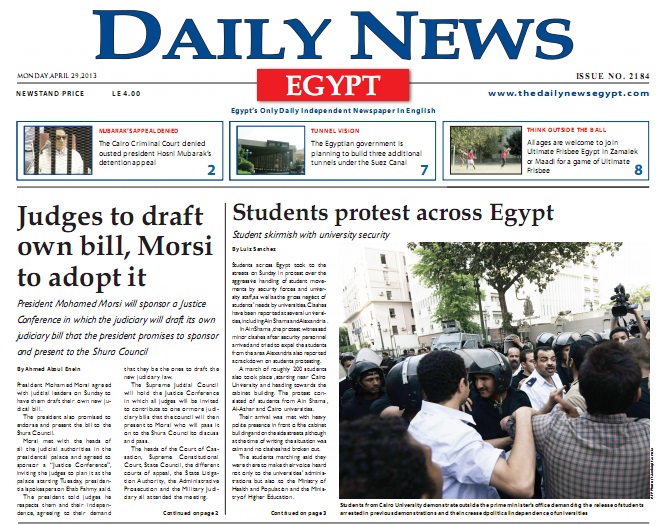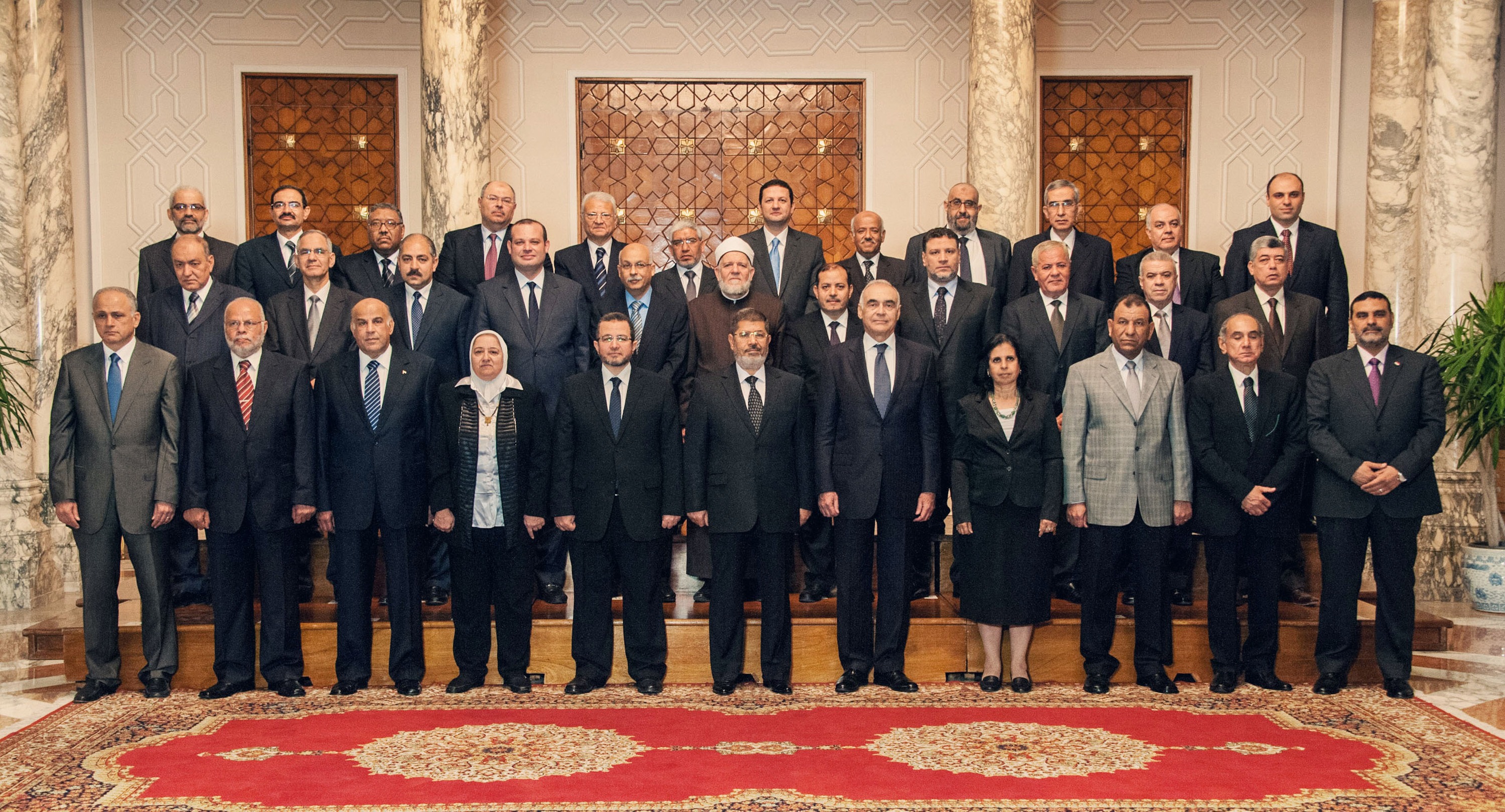CAIRO: On the morning of July 23, state-run newspapers limited their coverage of the national holiday to President Hosni Mubarak’s speech commemorating the achievements of the 1952 Revolution.
Meanwhile, independent newspapers designated articles or full-fledged supplements analyzing the milestone in Egypt’s history. On July 23, 1952, a group of young army officers staged a coupe that toppled the monarchy and established the republic.
Rose Al-Youssef and Al-Ahram both gave a straightforward report of a speech delivered by President Mubarak about the achievements of the revolution, in which he expressed his wishes to see Egypt develop further in the years to come.
Al-Ahram featured an editorial by Dr Abdallah Al-Tawy, vice president of the Cairo University, giving a cultural perspective on the meaning of the 1952 revolution.
Independent daily Al-Masry Al-Youm conducted an interview with Ahmed Hamroush, chronicler of the revolution and former Free Officer, who sang the praises of the revolution, stressing its role in expelling the British from Egypt, introducing just legislation, building the High Dam and enhancing the status of women.
Hamroush expressed his disappointment at the fact that younger generations know nothing of the revolution except the national holiday it grants them every year.
Another Al-Masry Al-Youm editorial recalls the media coverage of the July 23 revolution on that very day, and Mohamed Hassanein Heikal is cited as having said on Al Jazeera that Egyptian newspapers did not report the revolution because they doubted the magnitude of the military coup.
An Al-Dostour interview with Salah Eissa, a historian and editor of Al-Qahira newspaper, offered a more critical perspective. Eissa describes former president Gamal Abdel Nasser as a “clever dictator who ruthlessly suppressed opposition and failed to accomplish anything creative during his mandate.
Eissa also claims that the only enduring legacy of the revolution is an executive power which infringes upon the legislative and the judicial powers. He gave Anwar Sadat a slightly more positive assessment, crediting him for destroying the totalitarian character of the state. Eissa concludes by urging the Egyptian people to continue the struggle for democracy because “what we have is not enough and we deserve much more.
Al-Dostour also featured an editorial by Abdel Moneim Mounib on Nasser and the Muslim Brotherhood, explaining how the battle between Nasser and the Islamist movement began when the latter started demanding that Sharia be applied in Egypt, as well as the principles of Islamic government.
He responded by dealing the Brotherhood a crushing blow, punishing even those who had not taken part in any political or militant opposition to his regime. According to Mounib, he also restricted the role of the ulama (religious scholars) to being a propaganda tool for the revolution and to fan popular animosity towards Israel.
Significantly enough, Al-Wafd opposition newspaper did not devote much space to commemorating the anniversary of the revolution.


